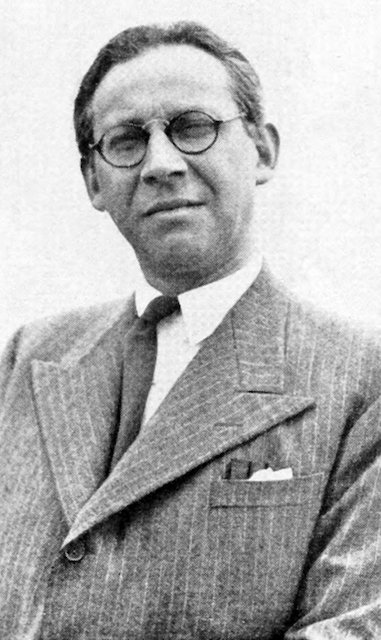Churchill, the Screenwriter, his friend the Hungarian Movie Mogul and their cinematic battle to change minds.
zita kisgergely
No, this isn’t a Peter Greenaway film you somehow missed. It’s a spin on the title of a documentary: Churchill and The Movie Mogul directed by John Fleet, 2018. Recently screening in cinemas in Budapest, it explores the little-known collaboration between a Hungarian immigrant and one of the most well-known politicians of the twentieth century.
While it might seem perfectly commonplace these days for actors to hold public office–the names Ronald Reagan, Arnold Schwarzenegger, Glenda Jackson and Volodymyr Zelenskyy spring to mind–screenwriters are not often considered winsome enough public speakers able to convince millions of people to vote them into office.
Although the recent screenwriter’s strike in Hollywood really does call into question the stereotype of the introverted creative incapable of public speech…
But what writers do best is string words together on a page and create worlds that move people. And perhaps convince an audience to broaden their minds and see things from a different perspective.
That’s what Churchill was asked to do back in the 1930s by Alexander Korda, a Hungarian/Jewish immigrant, director, producer and screenwriter who cut his teeth in Hollywood before going to London to establish one of the most successful film production companies of the era, London Film Productions.
Alexander Korda, photo from Wikipedia.
At that time, Churchill was in the political wilderness and only too aware how important it was to use storytelling in the battle for people’s hearts and minds. He wrote to Korda in 1934, saying, “with the pregnant word, illustrated by the compelling picture, it will be possible to bring home to a vast audience the basic truths about many questions of public importance.”
Further proving his political prowess in harnessing the power of film to sway public opinion, Churchill later wrote in a 1936 article entitled “The Future of Publicity” that, “the pictures are among the most powerful instruments of propaganda the world has ever known.”
Korda, recognizing Churchill’s talent, signed him up to write two screenplays for £10,000. One, entitled The Reign of King George V was to be an historical film embodying the best of British ideals and achievements. It will not surprise filmmakers to learn that those screenplays were never produced.
But the experience with Korda clearly left a deep impression on Churchill, and there was certainly bucket loads of mutual admiration going around. One of the great orators of our time, there was little doubt in Korda’s mind about Churchill’s ability to stir public emotion with speeches rich in visual imagery. And writing about Korda to his wife, Clementine, Churchill remarked,
“Korda certainly gives me the feeling of a genius at this kind of thing…. I have great confidence in this man and in his flair.”
Winston Churchill, photo from Wikipedia.
The collaboration would continue a few years later, at a crucial moment in twentieth century history when it seemed nothing would convince Americans to join in the Second World War.
Dispatched to Hollywood in 1940 by Churchill’s Minister of Information, Korda made films that would garner American sympathy and support for the British war effort against Hitler. Particularly notable was the film, That Hamilton Woman, which brilliantly cast Laurence Olivier as Admirable Nelson and Vivien Leigh (hot off the heels of the hit, “Gone with the Wind”) as his lover Emma Hamilton.
Vivien Leigh and Laurence Olivier in “That Hamilton Woman.” Photo from Wikipedia.
With the character of Napoleon in the film being a not too subtle stand-in for Hitler, Admirable Nelson declares at one point, “you cannot make peace with dictators, you have to destroy them, wipe them out.” A much-repeated war rally of the time, the line was supposedly written by Churchill himself.
The features were a success but didn’t just attract the attention of the film-going public. The FBI also showed interest in the movies for their blatant political messaging and Korda was subsequently grilled by a Senate committee. But although the films generated much American goodwill for Britain, the pivotal event that led the U.S. to join the war was the Japanese bombing of Pearl Harbour.
Movie poster from one of Korda’s successful films, “The Private Life of Henry VIII.” Photo from Wikipedia.
Beyond the fact that Korda bolstered wartime morale through his films, he also provided cover for MI6 agents in Europe by claiming they were employees of his production company. In 1942, Alexander Korda’s efforts for the cause were recognized when he was knighted by Churchill, cementing his role not only in establishing the British film industry, but as a committed ally to his adopted country.
With our own increasing dependence on visual input in all facets of life, the partnership of Churchill and Korda remains a lesson in–and a reminder of–the power of cinematic collaboration in gently influencing audiences, or downright pushing agendas. Through the screen (no matter the size), it’s not just narratives that are created. Art and politics can be fused to mobilize people–for better or worse.
Flatpack Films has years of experience servicing international brands, agencies and production companies. Filming in Hungary is easy when relying on their knowledge of the market and ability to solve complex needs. They bring the best that Hungary has to offer in terms of unique locations, exceptionally skilled crews, top-of-the-line equipment and technical solutions. Backed by an impeccable track record, Flatpack Films has worked with world-class clients including Samsung, Samsonite, Toyota, Braun, Chivas Regal and many more.
Get in touch and learn more about Budapest film locations, Hungarian film incentives, film tax credits in Hungary and how Flatpack Films can bring your project to life through a highly bespoke approach.
Sources:



